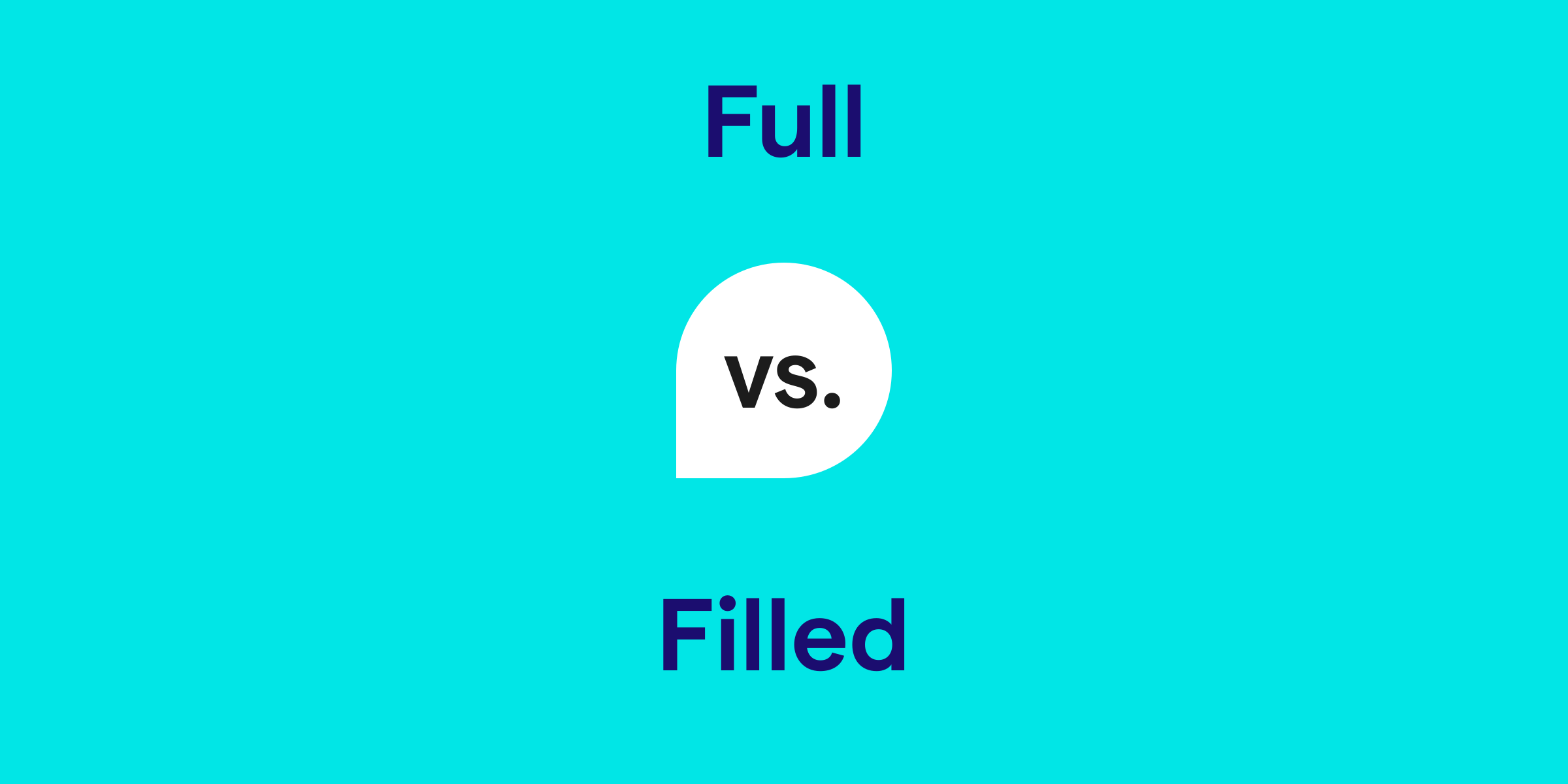Full vs. Filled: What's the Difference?
The words full and filled are often used interchangeably, but there is a subtle difference in meaning and usage. Full is an adjective that describes something that has reached its limit or capacity, usually without implying an action. 'Filled,' often a past participle of the verb 'to fill,' implies that an object was made full by someone or something.

How do you use the word full in a sentence?
Use full to describe something that is completely filled or containing as much as possible, usually without indicating the process of becoming full. It can apply to both tangible and intangible concepts, such as emotions, schedules, or physical containers.
Examples of full in a sentence
- After the rainfall, the pond was full to the brim.
- She had a full schedule last week and couldn't take any additional appointments.
- The audience gave a full round of applause to the performers.
How do you use the word filled in a sentence?
Filled is best used when describing the outcome of an action where the contents have been added to reach capacity. It often highlights the process or result of filling rather than the state of being full.
Examples of filled in a sentence
- The volunteers filled the bags with food donations for the drive.
- Her heart was filled with joy when she heard the good news.
- By the end of the event, the donation jar was filled with coins and bills.
Full and filled definition, parts of speech, and pronunciation
Full definition:
Full (adj.): Having no empty space; completely filled or occupied; containing as much or as many as is possible or normal.
Full parts of speech:
Full pronunciation:
/ful/
Filled definition:
Filled (verb, past participle): To become full; to make full; to occupy completely; usually implying an action of filling a space or container.
Filled parts of speech:
Filled pronunciation:
/fɪld/
Full (adj.): Having no empty space; completely filled or occupied; containing as much or as many as is possible or normal.
Full parts of speech:
- As an adjective: The movie theater is full on weekends.
- As a noun (informal): She ate her full and declined the dessert offer.
Full pronunciation:
/ful/
Filled definition:
Filled (verb, past participle): To become full; to make full; to occupy completely; usually implying an action of filling a space or container.
Filled parts of speech:
- As a verb: The staff filled the water glasses throughout the dinner.
- As an adjective (in combination): The room showed off its filled-bookcases and cozy reading nooks.
Filled pronunciation:
/fɪld/
Full vs. Filled in a nutshell
In a nutshell, full is an adjective that describes a condition of being at maximum capacity, often without indicating an action that caused it. 'Filled,' however, is often used to indicate the result of the action of filling something up. While filled can also function as an adjective, it particularly emphasizes the completion of the action. Understanding the context and use of these terms helps to employ them accurately in conversation and writing.
Get AI Writing Assistance Wherever You Type
Make sure your vocabulary is on point and every punctuation mark is in the right place, no matter where you’re working. Grammarly works across more than 500,000 websites and apps so you can improve your writing without copying, pasting, or breaking focused.

More Commonly Confused Words
Interest piqued? Pore (not pour) over other commonly confused words to help your writing reach peak (not peek) performance.